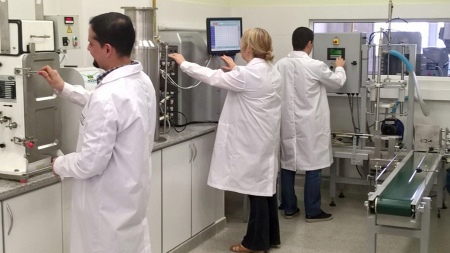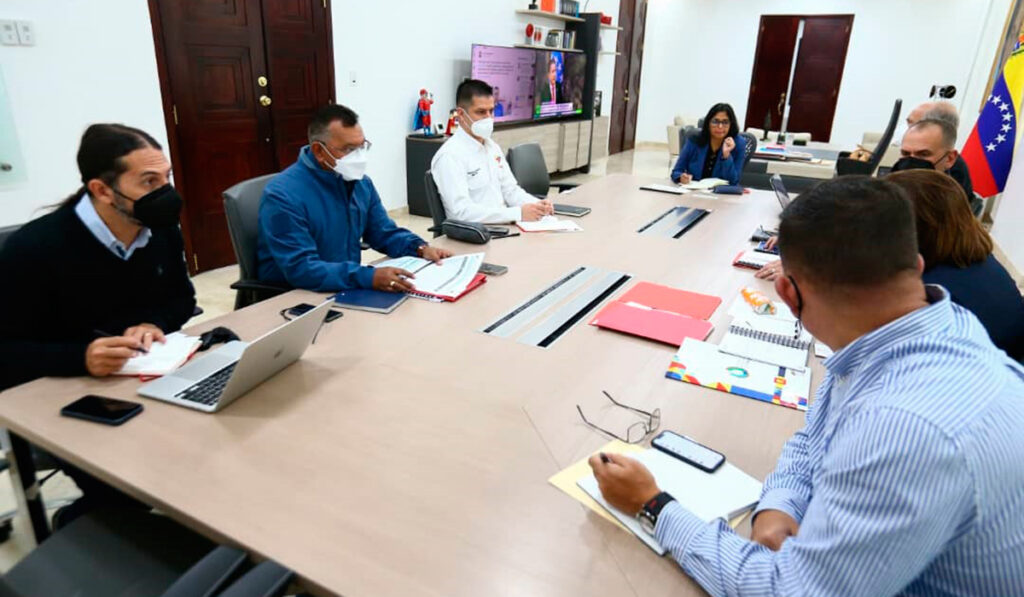Just two blocks from the Historic House where Argentine independence was proclaimed in 1816, the interdisciplinary team of the Reference Center for Lactobacilli (Cerela) dependent on the National Council for Scientific and Technical Research (Conicet) that presented last Thursday the first yogurt to hit the market with a probiotic strain that produces benefits for the immune system.
“All the lines of research that we carry out are important because they contribute to knowledge and, in the short or long term, we hope that they will serve to solve problems in society,” he told Télam. the doctor in Biochemistry, Jean Guy LeBlanc, director of Cerela.
The main researcher at Conicet, a native of Canada, has been a member of the Center for more than 20 years and He put down roots in Tucumán, where he traveled to do an internship and ended up raising his family and naturalizing as an Argentine.
“In Canada, when I was looking for scientific articles for my postgraduate studies, I found many that came from Cerela,” he recalled, noting that in the world of probiotics, the institution – made up of more than one hundred scientific professionals and support staff – “is a national and world benchmark” and has among its objectives the transfer of knowledge achieved to the socio-productive sector.
The Reference Center for Lactobacilos was founded 46 years ago through an agreement in which Conicet, the Miguel Lillo Foundation and the Foundation for Education, Science and Culture (Fecic) participated.
“It is part of the DNA of the Center that many of the lines of research can finally be transformed into products that have solid scientific bases and bring solutions to specific problems,” the doctor in Biochemistry explained to Télam, Conicet principal investigator in Cerela, María Pía Tarantoborn in Tucumán, who began working at the Center in 1995.

“There are not many national institutes that combine strong basic research with strong applied research”added the also technical manager of the project that took almost 20 years of research and developed a technology that consists of the probiotic strain “Lactobacillus rhamnosus CRL 1505”, the lactic bacteria that strengthens the immune system to “prevent or deal with respiratory and intestinal infections”. and that, applied to a yogurt, transformed the product that is massively distributed into a “functional food” that will reach the population of the entire country through an agreement made between the Conicet and the Danone company.
“We did not sell the strain, we granted a license to commercialize itbut the technology continues to belong to Conicet and its researchers, something very important that allows us to continue using it in social programs,” LeBlanc clarified.
The lactic bacteria presented is the same strain as more than ten years ago, from Cerela, apply within the social programs “Yogurito escolar”, “BioSec”, “Chocolet” and “Bioqueso”where they provide, through the Government of the province of Tucumán, three times a week, a yogurt with the same benefits as the commercial one, but free of charge to 330,000 children who attend public schools and who, in some cases, are They find themselves “in conditions of serious vulnerability and poverty,” explained the scientist. “We hope to continue reproducing this in other provinces soon,” he added.
The main social problems that motivated the investigation of these lactic bacteria were the cases of child malnutrition in an environment that also presented diarrhea, parasitosis and recurrent respiratory problems.
Lactic acid bacteria are not only in milk, they are part of the intestinal microbiota, they are found in plants, fruits; and they are called that because produce lactic acid from the fermentation of a carbohydrateTaranto explained. Meanwhile, probiotics “are microorganisms that have a beneficial effect when incorporated into the body,” the expert defined.
The license for this lactic bacteria, isolated from goat’s milk in Tucumán, is also “exported” – LeBlanc announced – within the framework of an agreement between Conicet and one of the most important probiotic-producing companies in the world, Sacco, which allows its commercialization to be included in different foods and biopharmaceuticals.

Also, The Conicet also agreed in December to an agreement for another strain, L. casei CRL 431, selected and studied in Cerela, with another world leading company in the production and marketing of probiotic ferments, Christian Hansen. The strain had been on the Argentine market as a bioingredient in Bio Milk and they hope it will return to the national market.
Cerela’s interdisciplinary team, made up of researchers, support staff and fellows, specialized in different scientific careers, develops their work in various axes, they explained.
In human health, they highlighted the study of probiotics and “functional” foods as treatment complements for different pathologies such as cancer, Parkinson’s or Alzheimer’s, gastrointestinal, respiratory and metabolic problems, among others. Regarding “functional food”, Taranto pointed out that “it is ideal” because it is nutritious and has effects on the general well-being of the organism.
In addition, they develop lactic acid bacteria cultures intended to ferment different foods such as yoghurts, cheeses, vegetables, sausages and drinks; and they study lactic acid bacteria aimed at improving sanitary and productive conditions in the livestock industry and they also evaluate strains that can be used for pets.
In this regard, they carry out multidisciplinary work under the guidelines of the World Health Organization, with the “One Health” approach, which promotes the concept that human health is closely related to the wholesomeness of food, animals and the environment.
Along the same lines, the use of beneficial lactic bacteria allows producers to “reduce the use of antibiotics in the production chain”, something that “favors protecting the environment and reducing an increasingly important problem such as resistance to antibiotics,” LeBlanc said.
The professionals told that they have all the necessary equipment to carry out their studies and technological developments at the Center, and highlighted the food laboratory and a Cerela pilot scale production plant.
“Our country has a public scientific system strengthened with a Science and Technology policy that subsists over time and that does not exist in many parts of the world,” the director valued.
“In Cerela and Conicet there is an enormous scientific-technological capacity based on societysomething that the pandemic made visible”, reinforced Taranto, and concluded: “as long as the State continues to consider scientists and scientific institutions as an essential part of building technological sovereignty, I perceive the future as encouraging”.


















